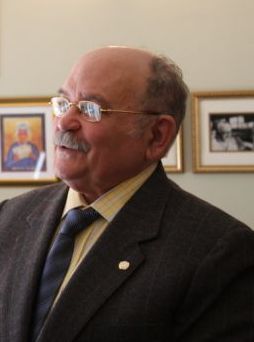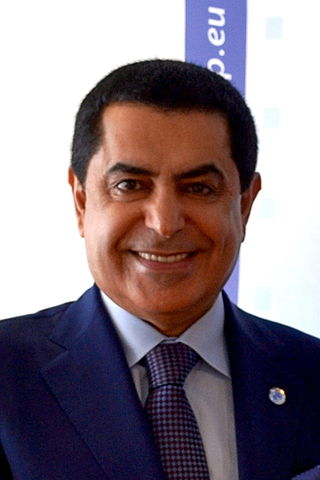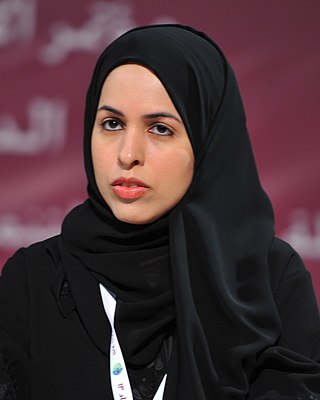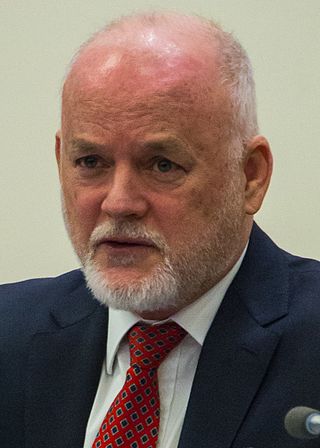
The United Nations General Assembly is one of the six principal organs of the United Nations (UN), serving as its main deliberative, policymaking, and representative organ. Currently in its 78th session, its powers, composition, functions, and procedures are set out in Chapter IV of the United Nations Charter.

The president of the United Nations General Assembly is a position voted by representatives in the United Nations General Assembly (UNGA) on a yearly basis. The president is the chair and presiding officer of the General Assembly.

Miguel d’Escoto Brockmann was an American-born Nicaraguan diplomat, politician and Catholic priest of the Maryknoll Missionary Society. As the President of the United Nations General Assembly from September 2008 to September 2009, he presided over the 63rd Session of the United Nations General Assembly. He was also nominated as Libyan Representative to the UN in March 2011. He died on 8 June 2017, having suffered a stroke several months earlier.

John William Ashe was an Antiguan diplomat and politician. He was the President of the United Nations General Assembly at its 68th session, which ran September 2013 to September 2014. He was also President of the UNICEF Executive Board in 2012. He served as Permanent Representative to the United Nations in New York of Antigua and Barbuda between 1995 and 2004.

Heraldo Muñoz Valenzuela is a Chilean political scientist, academic, diplomat and politician; the former Minister of Foreign Affairs of Chile under President Michelle Bachelet; former Assistant Secretary General, Assistant Administrator, and Regional Director for Latin America and the Caribbean of the United Nations Development Programme; and the former Chilean Ambassador to the United Nations, to Brazil, and to the Organization of American States.
Brazil is a non-permanent member of the United Nations. It has participated in peacekeeping operations with the UN in the Middle East, the former Belgian Congo, Cyprus, Mozambique, Angola, and more recently East Timor and Haiti. Brazil has been regularly elected as a non-permanent member to the Security Council since its first session in 1946 and is now among the most elected UN member states to the UNSC. Brazil was elected to become a member of the 15-country UN Security Council for the two-year term of 2022-23.
Fiji established its Permanent Mission to the United Nations on 13 October 1970, three days after obtaining its independence from the United Kingdom. Since then, Fiji's participation in the United Nations has been notable primarily for its active role in UN peacekeeping operations, which began in 1978.

The Sixty-sixth Session of the United Nations General Assembly opened on 13 September 2011 at 15:00 and was presided over by former Qatari permanent representative to the UN Nassir Abdulaziz Al-Nasser. The session ended on 18 September as al-Nasser symbolically passed the gavel to the president of the next session, Vuk Jeremic.

The Sixty-seventh session of the United Nations General Assembly opened on 18 September 2012 and having its last scheduled meeting on 11 September 2013. The President of the United Nations General Assembly was chosen from the EEG with Serbia's then foreign minister Vuk Jeremić beating out Lithuania's Dalius Čekuolis in an election. Notably, the session led to United Nations General Assembly resolution 67/19 which granted Palestine non-member observer state status.
Indonesia officially became the 60th member of the United Nations on 28 September 1950, in accordance with the United Nations Security Council Resolution 86 two days before, and the United Nations General Assembly resolution number A/RES/491 (V) on the "admission of the Republic of Indonesia to membership in the United Nations", less than one year after the independence of Indonesia's by the Netherlands at the Dutch–Indonesian Round Table Conference in the Hague.
Malaysia became the 82nd member of the United Nations on 17 September 1957. Malaysia has held a rotational non-permanent seat on the United Nations Security Council for four terms, and has participated in over 30 United Nations peacekeeping missions since October 1960.

The 70th Session of the United Nations General Assembly opened on 15 September 2015. The President of the United Nations General Assembly was from the Western European and Others Group.

Sheikha Alya Ahmed Saif Al-Thani (Arabic: علياء بنت أحمد آل ثاني; is a Qatari diplomat who currently serves as the Permanent Representative of the State of Qatar to the United Nations.

The Seventy-first Session of the United Nations General Assembly opened on 13 September 2016. The President of the United Nations General Assembly is from the Asia-Pacific Group.
An indirect presidential election was held to choose the President of the United Nations General Assembly on 13 June 2016 to replace Mogens Lykketoft and preside over the Seventy-first session of the United Nations General Assembly. It was the rotational turn of the Asia-Pacific Group to preside over the session. Peter Thomson was elected with 94 votes for and 90 votes against. This was the first time since 2012 that there was no consensus candidate from the regional groupings, thus invoking a secret ballot vote. His tenure begins on 13 September 2016.
The United Nations Credentials Committee is a committee of the United Nations General Assembly whose main purpose is to report to the Assembly regarding the credentials of the body's representatives.

The Sixty-fourth session of the United Nations General Assembly was the session of the United Nations General Assembly that ran from 15 September 2009 to 14 September 2010. The President of the session, Ali Abdussalam Treki of Libya, was elected from the Group of African States on 10 June 2009 by acclamation.

The eleventh emergency special session of the United Nations General Assembly opened on 28 February 2022 at the United Nations headquarters. It addresses the Russian invasion of Ukraine. Maldivian politician Abdulla Shahid served as President of the body during this time.

United Nations General Assembly Resolution ES‑11/2 is the second resolution of the eleventh emergency special session of the United Nations General Assembly, adopted on 24 March 2022, following Resolution ES-11/1 which was adopted on 2 March 2022. Resolution ES‑11/2 reaffirmed the UN's former commitments and obligations under its Charter, and reiterated its demand that Russia withdraw from Ukraine's recognized sovereign territory; it also deplored, expressed grave concern over and condemned attacks on civilian populations and infrastructure. Fourteen principles were agreed.

The Seventy-seventh session of the United Nations General Assembly was the session of the United Nations General Assembly which opened on 13 September 2022, and closed on 5 September 2023. The President of the UN General Assembly was from Eastern European Group.












